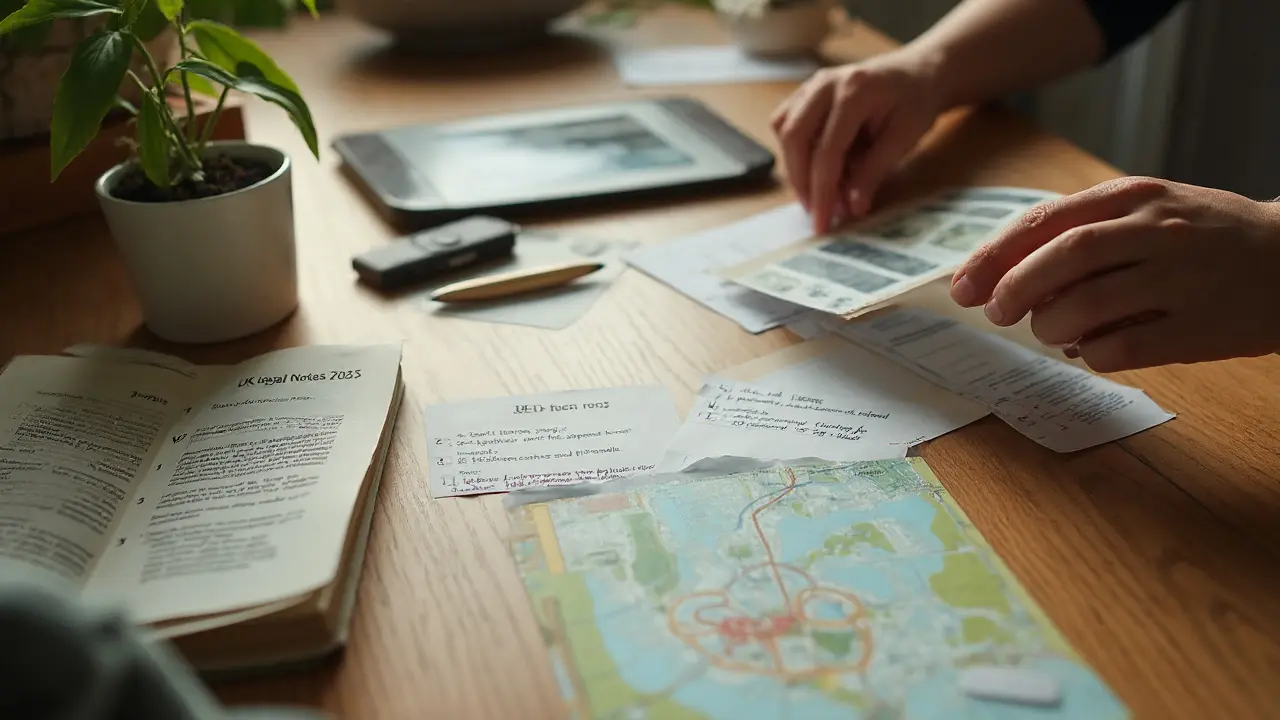Privacy is your armor. One careless photo, one sloppy text thread, one invoice with your legal name-suddenly a client knows where you live, or a doxxer posts your info on a forum. If you work independently, you don’t have a manager, receptionist, or legal team shielding your identity. You have to build the wall yourself, brick by brick, while still running a business and staying safe with clients. That’s the tension this guide solves: how to stay anonymous enough to protect your life, yet visible enough to earn.
Here’s what you can expect: no fluff, no tech-bro jargon, and no shady advice. I’ll give you a clear, step-by-step setup you can finish in a weekend, plus checklists you can reuse before every booking. I’m writing from the UK, where selling sex is legal but many related activities aren’t, and where tax and data laws matter. If you’re elsewhere, the principles still hold-adjust to your local rules. The goal isn’t to hide from the law; it’s to stop stalkers, nosy neighbors, and reckless platforms from handing out your private life like flyers.
What you’re really trying to do boils down to a few jobs-to-be-done:
- Build a separate, durable work identity that never leaks your legal name, home, or family.
- Communicate with clients safely while screening out time-wasters and risks.
- Handle images, payments, and bookings without leaving obvious trails.
- Operate within the law, keep taxes clean, and control your data footprint.
- Respond fast when something leaks-contain it, fix it, and prevent repeats.
TL;DR and Foundations That Keep You Out of Trouble
Key takeaways
- Separate your life into three buckets: legal identity (private), work persona (public), and tools (devices/accounts). Never mix them.
- Use a dedicated phone number, email, and device for work. Add a second eSIM for travel or high-risk clients.
- Screen with a 2-of-3 rule: require two independent signals (ID on a reputable verification site, a real work email/LinkedIn, or a verifiable reference from a known provider).
- Strip metadata from photos, use neutral backdrops, and reverse-image-search your own pics regularly.
- Keep clean books. Pay tax. In the UK, register as self-employed with HMRC and keep work banking separate.
Let’s lay the base. You need a simple structure that your future self won’t accidentally break when you’re tired, busy, or stressed.
The three-silo model
- Identity: Legal name, home address, and family details stay offline and off devices used for work. Never appear in bookings, invoices, or domain registrations.
- Persona: Your stage name, work photos, and brand voice. This is what clients see. Treat it as a product with rules.
- Tools: Dedicated devices and accounts. If a device is borrowed or shared, it’s not a tool-it’s a leak waiting to happen.
Legal frame (UK specifics; adapt if abroad)
- Prostitution itself is legal in England and Wales; brothel-keeping, soliciting in public, and certain third-party activities are not. Don’t co-work from the same flat: two or more can be classed as a brothel.
- Tax: Register for Self Assessment with HMRC and keep contemporaneous records (income, expenses, mileage). If audited, clean records and a separate account reduce scrutiny.
- Data protection: If you store client data, UK GDPR applies. Keep only what you need, for as short as needed. The Information Commissioner’s Office (ICO) sets the baseline.
Risk appetite and rules of engagement
- Write your own red lines now: no last-minute address changes, no private homes without prior vetting, no cash-on-arrival first bookings, no late-night first meets.
- Decide your de-anonymization thresholds: what would force you to walk away? A client refusing screening? A mismatched name on arrival? Know your answer before you’re on the doorstep.
One-time setup that makes you 80% safer
- Buy a dedicated smartphone (mid-range Android or iPhone). Encrypt it. Turn on a strong passcode. Enable biometric unlock only if your jurisdiction protects it; in many places, passcodes have stronger legal protections than biometrics.
- Use a separate Apple ID/Google account just for work. Do not add personal contacts or photos.
- Get a work number via a reputable provider (SIM or eSIM). Avoid free VoIP apps tied to your personal email.
- Create a clean email at a privacy-forward provider. Turn on 2FA with an authenticator app.
- Register a domain under your persona with WHOIS privacy turned on. Use a registrar that respects GDPR redaction. Hosting should allow pay-without-linking to your personal identity.
Credible references: For UK data and security basics, the ICO and the National Cyber Security Centre (NCSC) publish practical guidance on strong authentication, device security, and data minimisation. For tax, HMRC’s Self Assessment pages outline what to keep and for how long.

Step-by-Step Playbook: Identity, Comms, Screening, Money, and Photos
This is the day-to-day routine that protects your privacy while keeping bookings smooth.
1) Build the work identity
- Pick a stage name that isn’t tied to your past handles. Avoid names matching your real initials. Search it across platforms to make sure it’s not already tied to you.
- Craft a short bio with boundaries inside it: “Screening required. First meets in hotel lobbies or vetted venues. No explicit chat outside confirmed bookings.” Saying this upfront saves arguments later.
- Create two versions of your brand kit: public (site, ads, profiles) and private (for verified clients-more details, more photos). Keep the private kit behind a verification step.
2) Lock down devices and accounts
- Phone: Set a 6+ digit passcode. Turn on automatic updates. Disable lock-screen previews for messages and calendar.
- Browser: Use a separate browser profile for work. Default to private windows. Block third-party cookies. Install a reputable ad/tracker blocker.
- Passwords: Use a password manager. Generate unique 16+ character passwords. Store recovery codes offline.
- 2FA: Prefer authenticator apps or passkeys over SMS where supported. Back up passkeys to your work cloud only.
- Backups: Apply the 3-2-1 rule: three copies, two different media, one offsite (encrypted). Photos and bookings are your income-don’t risk a single point of failure.
3) Communications that don’t leak
- Work number only. No mixing personal and work in WhatsApp family groups, iMessage threads, or shared drives.
- Choose one primary booking channel (email form, secure messaging, or a platform inbox). Fewer channels = fewer leaks.
- Use disappearing messages for sensitive details, but don’t rely on them for contracts or records. Keep a redacted booking log for yourself.
- Never send live location. Share arrival windows instead. If you must share location with a safety contact, use a separate app just for that.
- Set voicemail to a neutral greeting. No real name. No personal anecdotes.
4) Screening with the 2-of-3 rule
Ask for any two of the following (never store more than needed):
- A verifiable work identity: corporate email (not free webmail) or a LinkedIn profile with tenure and activity that checks out.
- Provider reference: a short note from a reputable, established provider you can reach via her official channel.
- Verified platform status: checkmarks on trusted industry platforms that enforce ID checks.
Practical notes:
- Reverse-search email and phone numbers. Look for scam reports or obvious burner patterns.
- Ask for a hotel booking code after the client arranges accommodation, then call the front desk yourself to confirm the reservation-no extra details needed.
- Mismatch = pause. If names, numbers, or stories don’t align, don’t argue-just stop.
5) Photos that protect your face and metadata
- Use a neutral, repeatable indoor setup: one wall, one light, one backdrop. Avoid unique decor that can be reverse-searched.
- Scrub metadata (EXIF) before posting. Most phones can remove location data at share-time; for older images, use a metadata remover.
- Crop out windows, street views, or art. Tiny reflections in a mirror or a kettle can expose a location.
- Reverse-image-search your own photos monthly. If a fan account reposts without credit or edits your watermark, take a screenshot and log it.
- Watermark tastefully. Small, consistent corner marks are enough to deter casual theft.
6) Payments without obvious trails
- Banking: Use a dedicated account. Give it a neutral name. Keep personal subscriptions, groceries, and school fees away from it.
- Cash: Good for privacy, tricky for record-keeping. If you accept cash, log it the same day and store safely. Don’t mix cash with personal spending.
- Transfers: If you accept bank transfers, invoices should use your work name and service codes that don’t spell out adult services. Keep descriptions neutral and consistent.
- Crypto: Most exchanges require ID (KYC). Treat crypto as traceable unless you deeply understand on-chain privacy. If you don’t, don’t pretend you do.
7) Venues and travel
- First meets at hotels or vetted short-lets with decent CCTV and front desk presence. Avoid your home and their home for first bookings.
- For incalls: rotate venues; don’t build a routine neighbors can map. Consider serviced apartments booked under your work persona email, paid via business funds.
- Travel under your legal identity, but keep your work device powered off during airport security and only turn it on at destination.
- Use rideshare pickup/drop-off one block away, not at the door. Keep drivers out of your routine.
8) Safety contacts and logs
- Set a silent safety protocol with a trusted person: a codeword for OK, a different one for “call me now,” and a phrase for “call emergency services.”
- Use calendar entries with initials only. No room numbers in shared calendars.
- After each booking, log only what you need: initials, date, city, rate, and a one-line risk note.
9) Example scripts
- Screening ask: “For both our safety, I require two of: a corporate email, a reference, or verified platform status. I delete screening info after our first meet.”
- Boundary hold: “Happy to chat once we’re booked. Until then, I keep messages short. Here’s the booking form.”
- Venue change pushback: “I don’t do last-minute address changes. If you’d like to rebook at the original hotel, I’ll hold your deposit for 30 days.”
10) Compliance and peace of mind
- Taxes: Keep a simple ledger or use accounting software. Reconcile weekly. Note cash separately. In the UK, store records for at least five years after the 31 January submission deadline.
- Data protection: Only collect what you need to screen. Set auto-delete timers (e.g., delete DMs after 90 days). If you suffer a serious data breach, the ICO explains when to report it.
- Brand separation: If you run social media, use business accounts only. No cross-posting to personal stories. No location tags until you’ve left.
None of this is about being paranoid. It’s about making privacy your default, so you don’t have to think about it during busy weeks.

Checklists, Comparisons, FAQs, and What To Do When Things Go Sideways
Pre-meet checklist (15-minute sweep)
- Client verified with 2-of-3 rule; notes stored.
- Venue confirmed directly; lobby meet agreed.
- Safety contact notified with time window and check-in code.
- Work phone charged; low-power backup battery packed.
- Photo ID and cash separate from personal wallet; no personal cards on you.
- Messages prewritten: confirmation, arrival window, polite cancel if needed.
New phone setup checklist (30 minutes)
- Factory reset. New Apple ID/Google account (work only).
- Install messaging, email, authenticator, password manager.
- Disable contact and photo sync. No personal accounts at all.
- Set 2FA across all accounts. Store recovery codes offline.
- Turn off Bluetooth and Wi‑Fi scanning when not in use.
Photo privacy checklist (10 minutes per set)
- Backdrop neutral; remove unique objects.
- Face concealment consistent (mask, crop, angle).
- Metadata stripped; filename generic (not IMG_1234 from your phone’s pattern).
- Watermark small, consistent.
- Reverse-image-search your final picks.
Travel ops checklist
- Work device off through security; turn on at hotel.
- Rideshare drop/pickup one block away.
- Do not charge devices via public USB ports; use your own plug.
- Carry a spare eSIM/secondary SIM in a safe place.
Risk vs Fix table
| Data point | How it leaks | Exposure level | Fix |
|---|---|---|---|
| Phone number | Reverse lookup, reused on personal accounts | High | Dedicated SIM/eSIM; never reuse on personal apps |
| Data breaches, contact sync leak | Medium | Unique email; 2FA; disable auto-sync; aliases for platforms | |
| Photos | EXIF location, unique background items | High | Strip metadata; neutral sets; watermark; reverse search |
| Payments | Bank statements, invoice descriptors | Medium | Separate account; neutral descriptors; record cash properly |
| Domain | WHOIS revealing registrant | High | Enable WHOIS privacy; GDPR redaction; use service address |
| Scheduling | Shared calendar previews | Low | Use initials; disable lock-screen previews; separate calendar |
| Social media | Face/voice recognition; location tags | High | Business-only profiles; post after leaving; avoid live video |
| Address | Parcels, returns, domain records | High | Use PO Box or service address; never list home |
Mini-FAQ
Do I need a limited company? Not necessarily. Many work as sole traders. A company can leak your name via public filings unless you use a service address and understand the disclosure rules. If privacy is top priority, a sole trader with a service address and clean books is simpler.
What about end-to-end encrypted apps? Good, but not magic. E2EE protects content in transit. Your device and your client’s device can still leak. Use strong device security and screen clients the same way regardless of the app.
Should I accept deposits? Deposits cut no-shows, but they create a money trail. If you take them, keep descriptions neutral and the amounts consistent with your policy. Never send bank details from personal accounts.
How long should I keep client data? As short as possible. Keep what you need for tax and dispute resolution, then delete. Document your retention logic (e.g., “screening info deleted after first booking; invoices kept 6 years”).
Can I show my face? Your call. If you do, expect that someone will recognise you eventually. If you don’t, be consistent in all photos and videos to avoid accidental reveals later.
How do I talk to my accountant? You don’t need to share your real name publicly, but your accountant needs it for tax. Choose a professional used to sensitive clients. The job is compliance, not judgment.
What if a client insists on no screening? That’s a no. You’re running a business, not a raffle. The clients you want respect basic safety.
Scenarios and decision trees
First-time client, hotel meetup
- Do you have 2-of-3 screening? If yes, confirm and proceed. If no, request another signal or decline.
- Arrival change? If they switch hotels last minute, revert to deposit-hold policy and reschedule.
- Payment method mismatch? If they push crypto last second, pause. Keep to stated methods.
Regular client wants home visit
- Is the property verified? Ask for a daytime first visit or video confirmation of the address.
- Do you have a safety contact within 5 minutes? If not, pick a different date.
- No parking or entry plan? Clarify details or choose a neutral venue.
You spot your photo on a fake profile
- Screenshot everything with timestamps.
- File impersonation reports on the platform; include your watermark proof.
- Post a brief PSA on your verified channels once, then move on. Don’t feed trolls.
Phone lost or stolen
- Use Find My or equivalent to lock and wipe immediately.
- Change passwords for your email and messaging from a separate device.
- Notify upcoming bookings through your backup channel with a short, neutral message.
Troubleshooting: when something leaks
- Doxxing attempt: Take screenshots. Tighten privacy on all platforms. Consider a temporary pause to reset numbers and emails if the leak is systemic. Report credible threats to police; keep a clear record.
- Domain exposure: If your registrar leaked details, move the domain to a provider with enforced privacy. Turn on WHOIS privacy, use a service address, and audit every other place your legal name might appear.
- Payment dispute: Keep receipts and message logs. Respond through official channels only. Avoid public rows; they amplify attention.
Maintenance calendar
- Weekly: Reconcile payments; delete stale chats; back up photos.
- Monthly: Reverse-search images; change one critical password; review red flags in your booking log.
- Quarterly: Full device audit; rotate safety codes with your contact; review your deposit and screening policies against actual problems encountered.
Red flags to walk away from
- Refusal to screen or anger about basic boundaries.
- Insistence on private homes for a first meet.
- Rushed meetings with venue changes or sudden extra guests.
- Obsessive familiarity (knowing your neighborhoods or routines) before you’ve shared them.
What to say when you need to end it
- “This no longer meets my safety policy. I won’t be proceeding.”
- “I don’t do last-minute venue changes. I can hold your deposit for a reschedule within 30 days.”
- “Screening is required for a first meeting. If that’s not comfortable for you, I understand and wish you well.”
Why this works
Most privacy failures happen because of mix-ups, not master hackers: a personal Google account added on a work phone, a selfie with street art in the background, an invoice with your real surname in small print. The system here removes those easy mistakes. Separate devices and accounts stop bleed-through. Simple, consistent scripts reduce back-and-forth that encourages over-sharing. Screening sets expectations so good clients stay and the rest leave. And yes, pay your taxes-clean finances are the quietest privacy tool you have.
One last thought: your boundaries are part of your brand. Clients who respect them are safer, more reliable, and more likely to return. You don’t need everyone-you need the right ones. This guide helps you find them while keeping your real life firmly behind the curtain.
Use this as a living playbook. Update it when you spot new leaks, when platforms change rules, and when your comfort shifts. And keep that 2-of-3 screening rule taped to your desk-it saves more grief than any app.
For anyone reading who’s new and wondering if this is overkill: I get it. It feels like a lot. Try the one-week reset: new work email, new number, metadata-free photos, and the screening rule. Bookings won’t slow down. Stress will.
Quick reminder: Follow the law where you live, keep honest records, and treat your data like money-it’s valuable, and someone is always trying to spend it.
And if you only remember one phrase from all this: Separate, Screen, Simplify. It’s the privacy backbone for every independent escort I’ve ever advised.




